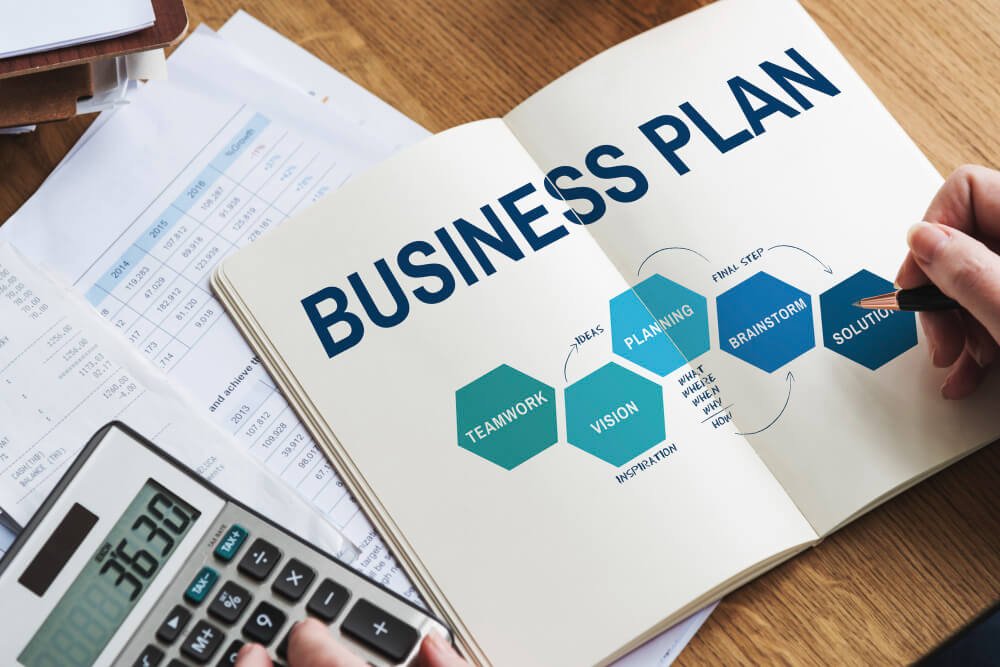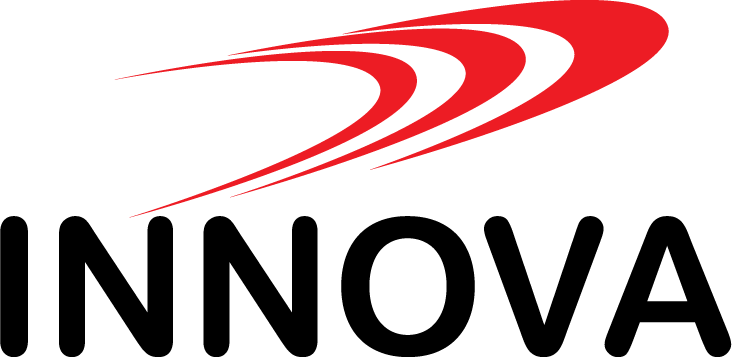Business Tax Planning
Effective business tax planning can significantly impact your bottom line and ensure financial health for your enterprise. Planning and strategizing for the long term is essential, rather than focusing solely on short-term gains.
But what’s the key to unlocking even more savings and optimizing your tax strategy? It all comes down to one crucial aspect that can make or break your tax planning success.
At Innova Investments, LLC, we understand the critical role that strategic business tax planning plays in the success and sustainability of businesses. Our experienced professionals are committed to providing complete tax solutions customized to meet each customer’s requirements. In addition to reducing liabilities, proactive tax planning also aims to maximize business expansion and profitability. We enable businesses in Bluffton, SC, to make well-informed financial decisions that optimize their tax situation while maintaining compliance with all relevant statutes by keeping up with the most recent tax laws and regulations.
For Business Tax Solutions
Contact Innova Investments, LLC at 843-951-9555 Today
5 Business Tax Planning Tips
Business Owners Should Know
1. Tax Planning Basics
Clarity and organization are crucial to ensuring financial stability and compliance when embarking on tax planning. A clear understanding of your financial situation will help you make informed decisions about tax planning. Create a system to track all your financial transactions throughout the year to avoid any last-minute scrambling during tax season.
Next, familiarize yourself with the current tax laws and regulations that apply to your business. Keep abreast of any modifications that can affect your tax obligations. Consider speaking with a tax professional to optimize your credits and deductions while abiding by the law. They can guide you through the intricacies of the tax system and offer insightful advice.
Establish clear financial objectives for your company as you plan. Specific goals will direct your tax planning decisions, whether they relate to investing in growth possibilities, conserving more money, or lowering your tax burden. To keep yourself on course, keep a close eye on your development and adapt as necessary.
Consider implementing tax-saving strategies such as retirement plans, health savings accounts, or tax-deferred investments. These options can help lower your taxable income and save you money in the long run. Proactively planning and organizing taxes can set your business up for financial success and stability.

2. Selecting the Appropriate Business Structure
The proper business structure is essential to maximizing your company’s tax planning approach. Your selected structure will impact your tax liability, administrative duties, and personal liability. There are various typical business structures, each with different tax ramifications.
The most basic type of business structure is a sole proprietorship, in which you and your company are treated as one entity for taxation purposes. This implies that your tax return will disclose any company income or losses. Although this structure is simple, remember that you are individually responsible for business debts.
A partnership is when two or more people jointly own a company. Profits and losses in a general partnership are carried over to the partners’ tax returns. Limited partnerships give partners with less involvement in the business more excellent liability protection.
The flexibility and liability protection offered by limited liability corporations (LLCs) makes them a popular choice for many small businesses. LLCs can be taxed as partnerships, S companies, C corporations, or sole proprietorships.
While selecting the best business structure, consider your long-term business objectives and room for expansion. Additionally, consult a tax professional to ensure your company’s financial stability.
3. Leveraging Tax Deductions
Make the most of your tax savings by carefully utilizing your business deductions. A primary method to accomplish this is to ensure you know about all the deductions you qualify for. Expenses for travel, office supplies, electricity, insurance, and staff compensation are examples of standard deductions. You can reduce your taxable income by keeping thorough records of these costs.
Another crucial tactic is to utilize the Section 179 deduction of the United States Internal Revenue Code, which lets you write off the whole cost of qualified software and/or equipment you buy or finance during the tax year. This deduction might be beneficial for small enterprises that buy new machinery.

Remember to consider developing retirement plans for your employees and yourself. Contributions to these programs, which are typically tax deductible for your company, can reduce your taxable income and help you save money for the future.
Additionally, consider donations to charities. If your company makes donations to approved charities, it could be able to claim a deduction. Maintaining documentation of these donations and ensuring they satisfy IRS deductibility standards is crucial.
4. Timing Your Income and Expenses
To maximize savings and optimize your tax situation, consider carefully timing your business’s income and expenses. By carefully scheduling when you incur expenses and receive revenue, you can minimize your taxable income and the taxes you owe.
Income deferral to the next year can be a valuable tactic. By delaying the payment receipt or invoice until the end of the year, you can carry over that income into the following tax year. This might be advantageous if you’ll be in a lower tax bracket the following year.
On the other hand, if you want to maximize your deductions, consider deferring costs until the current tax year. One way to lower your taxable income for the current year is to pay off bills like rent, insurance, and utilities before the end of the year.
Think about the timing of asset purchases as well. If you purchase equipment or make significant investments close to the end of the year, you can benefit from depreciation or other tax benefits sooner.
Maintaining precise documentation of earnings and outlays is essential to guarantee adherence to tax laws. By carefully scheduling your income and expenses, you can efficiently manage your tax liability and keep more money in your firm’s coffers.
5. Seeking Professional Guidance
Consulting with an experienced professional may help you navigate the complexity of corporate tax planning, guaranteeing that the best financial plans are implemented and offering priceless insights. Because tax regulations are complex and constantly evolving, you need a professional to guide you through the maze of options and help you make wise decisions. A tax professional may provide customized guidance based on your company’s needs, assisting you in maximizing deductions, lowering obligations, and maintaining regulatory compliance.

A tax professional can also help you with long-term tax planning and find ways to cut costs while expanding your company. They may assist you with future tax planning, tax credit and incentive research, and tax-efficient business structure. Working with an experienced tax professional will help you avoid tax concerns, avoid costly blunders, and ensure your company is set up for financial success.
Moreover, knowing that your tax affairs are in order might provide peace of mind when working with a tax professional. They can manage intricate tax issues, stand in for you during an audit, and inform you of any modifications to tax laws that might affect your company. In the end, hiring a tax advisor is a smart move that may save a lot of money and improve the success of your company as a whole.
With this knowledge of the fundamentals of business tax planning, you can make wise choices to reduce your tax obligations and increase your savings.
You can make sure your company is financially ready for tax season by knowing the fundamentals, selecting the proper business structure, taking advantage of deductions, scheduling your income and expenses, and getting professional advice.
Remember, proactive tax planning can significantly benefit your bottom line.
Improve Supplier Relationships
Working with the best bookkeeping services will ensure the accounts payable division functions more efficiently. Invoices can be opened and handled more quickly than if piled high on your desk. You can take different supplier discounts if you pay suppliers more quickly. Supplier relationships will also be strengthened because you won’t need to chase them down for payment. You might be amazed at how quickly suppliers are eager to help you with special orders and speedier order turnaround times if you pay invoices on time.
It would help if you were honest about your firm’s current operations. It could indicate that you are overburdened with your company’s bookkeeping procedures if you lack a budget, are constantly unsure of how much money you have, or receive payment reminders from your suppliers.
Frequently Asked Questions
How Can I Ensure Compliance With Complex Tax Laws and Regulations as a Small Business Owner?
To ensure compliance with complex tax laws and regulations as a small business owner, you should stay updated on tax changes, maintain meticulous records, seek professional advice, and utilize available deductions and credits wisely.
Are Any Specific Tax Planning Strategies Tailored for Specific Industries or Sectors?
Yes, there are specific tax planning strategies tailored to specific industries or sectors that can maximize deductions and credits unique to your business. Stay informed about industry-specific tax breaks and regulations to optimize your tax position effectively.
What Are Some Potential Tax Implications of Expanding My Business Operations to New States or Countries?
When expanding your business operations to new states or countries, consider tax implications, research local tax laws, potential nexus creation, and filing requirements. Consult with tax professionals to strategize efficient tax planning for your business growth.
How Can I Minimize the Risk of an IRS Audit Through Effective Tax Planning Measures?
To minimize the risk of an IRS audit through effective tax planning measures, keep thorough records, file accurate returns on time, stay updated on tax laws, and seek professional advice when needed. Proactive measures can help protect your business.
What Are Some Potential Tax Planning Considerations for Succession Planning or Selling My Business in the Future?
Some potential tax planning considerations for succession planning or selling your business in the future involve tax implications. Strategize to minimize capital gains tax by utilizing exemptions and deductions. Consult a tax professional to optimize your financial outcomes and avoid unexpected tax burdens.
Client-Centric Tax Solutions: Partnering for Success with Innova Investments, LLC
At the heart of our brand philosophy is the belief that effective tax planning is collaborative. We collaborate extensively with our clients to fully comprehend their operations, business objectives, and market dynamics. With this client-focused methodology, we can create tailored tax plans that support their long-term goals. Whether navigating complex tax codes, identifying eligible deductions and credits, or implementing tax-efficient structures, we are dedicated to delivering proactive solutions that drive tangible value for our clients. With Innova Investments, LLC as your trusted partner, you can navigate the intricacies of business tax planning with confidence and peace of mind.
Contact Innova Investments, LLC at 843-951-9555 Today
